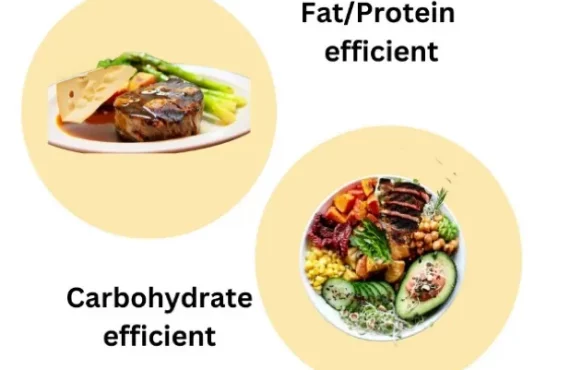Embracing Individual Health through Metabolic Typing
Beyond the Greens: Unpacking Why the Vegan Diet Isn’t a One-Size-Fits-All Solution
In recent years, the vegan diet has gained immense popularity, drawing individuals for reasons ranging from health and ethics to environmental concerns. Research found that 16 percent of Millennials have chosen strict Veganism at some point. A study estimates that 70 percent of all US Vegans are women.
However, this article aims to unravel the complexities of the vegan diet, acknowledging that despite its merits, it may not be universally suitable. Let’s delve into the foundations of veganism, explore its rising popularity, and understand why it might not be the perfect fit for everyone.
1. The Vegan Diet: Foundations and Principles
Let’s dive deeper into the basics of the vegan diet. Imagine it like a special way of eating that focuses mainly on plants, like fruits, vegetables, grains, and nuts. The key idea is to not eat any animal products, such as meat, eggs, or dairy. People who follow this way of eating believe it’s good for their health, helps the environment, and supports treating animals kindly.
Many people think the vegan diet is great because it can make our bodies healthier, protect the planet, and be kind to animals. But, there’s more to it than meets the eye. This way of eating might not suit everyone because our bodies are different, and we all need different types of nutrients to stay healthy.
While the vegan diet has its positive points, like being good for the environment and animals, it’s important to understand that it might not provide all the different nutrients our bodies need.
Each person is unique, and what works well for one might not be the best for another. So, even though the vegan diet has its foundations in good intentions, we should also consider if it gives us everything our bodies need to stay strong and healthy.
2. Exploring the Popularity of Veganism
Veganism isn’t just about what you eat; it’s a whole way of life. More and more people are getting interested in being vegan because things are changing in our culture, and we’re thinking more about the environment and what’s right or wrong. As lots of people start choosing this way of eating, we need to look at both the good things about it and the not-so-good things.
3. Potential Benefits and Limitations of the Vegan Diet
While the vegan diet offers health benefits, such as lower cholesterol and reduced environmental impact, it’s essential to acknowledge its limitations. Different health situations, what our bodies need to stay healthy, and the way we live our lives can affect how well the vegan diet works for different groups of people. Not everyone’s body is the same, and what one person needs might be different from what another person needs when they choose to eat a vegan diet. Understanding these differences helps us figure out if the vegan way of eating is the right fit for everyone.
4. Why the Vegan Diet May Not Suit Everyone
Understanding that each person is unique plays a big role in figuring out how well the vegan diet works for different individuals. It’s like recognizing that we all have our own health conditions, specific needs for certain nutrients, and diverse ways of living. These individual variations might not perfectly match the principles of veganism for everyone.
For example, some folks might have health conditions that require specific nutrients that are more easily found in non-vegan foods. Others might have lifestyle preferences or cultural practices that make it challenging to stick to a vegan diet. This is where the idea of a one-size-fits-all approach comes into play – it might not be the most effective strategy because it doesn’t consider the unique differences in people.
In simpler terms, it’s like trying to fit all shapes and sizes into the same pair of shoes – what works for one person might not work as well for another. Recognizing these differences helps us understand that there isn’t a one-size-fits-all solution, and that’s okay. It’s about finding the right balance that works for each person’s individual health, nutritional needs, and lifestyle, even if it means adjusting some parts of the vegan diet to make it a good fit for everyone.
5. The Role of Individualized Nutrition
To fix the problems with diets that are the same for everyone, we use something called individualized nutrition. This means looking at each person’s body in a special way. Metabolic typing is a part of this, and it looks at two important systems in our bodies: the Autonomic Nervous System (ANS) and the Oxidative System. These systems help us understand what kind of food is right for each person, making it like a personal guide to eating that suits exactly what our bodies need. Dr. Anju Mathur specializes in accurately establishing each patient’s metabolic type, ensuring a tailored and precise nutritional plan.
“If you look at it logically speaking the same diet doesn’t work for everyone because people are different. Their bodies are different.” says Dr. Mathur “the route to go down as metabolic testing. This way you can find out how the persons’ body reacts to the different nutrition or food.”
Metabolic Typing may be your answer
6. Understanding Metabolic Types
Within the realm of metabolic typing, there are nine possible classifications. Dr. Mathur’s expertise lies in comparing the ANS and the Oxidative System, ensuring accurate identification of each patient’s metabolic type. A metabolic type test becomes the key to determining the most fitting classification for an individual, paving the way for personalized and effective nutrition planning.
7. The Metabolic Type Test: Personalizing Nutrition
Dr. Mathur starts by doing a special test called a metabolic type test. This test is really important because it helps her figure out exactly how each person’s body works. By taking this test, Dr. Mathur can accurately tell what kind of metabolism each patient has. This precision is super important because it helps create personalized nutrition plans. These plans are like a roadmap for eating that matches exactly what each person’s body needs to be healthy, considering their unique metabolism and any health concerns they might have.
8. Benefits of Knowing Your Metabolic Type
Knowing your metabolic type has a lot of good outcomes. When we create diets that match exactly what your body needs, it can make you healthier, feel better, and make your way of eating more sustainable. Dr. Mathur’s way of doing things focuses on more than just eating to stay alive. It’s about eating in a way that makes your health the best it can be. So, understanding your metabolic type is like having a guide to help you eat in a way that’s perfect for your body and keeps you in good health.
Paving the Way for Personalized Wellness
To sum it up, the vegan diet has some good things, but it’s crucial to know it might not work for everyone because we all have different needs. The key to staying healthy and thriving is understanding our unique metabolic types. Dr. Anju Mathur’s skills in metabolic typing offer a custom-made, powerful, and lasting way to eat right. It’s not just about living – it’s about thriving! So, let’s step beyond the greens and start a journey toward our very own wellness adventure!












